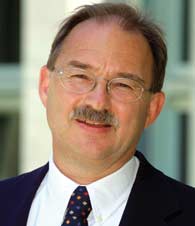|
Executive Interviews: Interview with Bill Fischer on Building High Performance Teams
May 2009
-
By Dr. Nagendra V Chowdary
How important is it to sustain
high performance teams? How do
you think these teams have to be kept
focused? What do you think
companies should be doing to keep
their tempo and temperaments going
in these tough times?
Let me speak specifically about
Virtuoso Teams: VTs are not, and
should not, be permanent
assignments. They are explicitly
temporary in nature, and probably
cannot sustain the energy/passion
that is an inherent part of a VT
experience. What this means is that
we should assemble VTs with the
realization that when they
accomplish their ambitious goals, we
should let them go. They were
chosen for a specific purpose, and
when that purpose has been met, it is
unreasonable to assume that they are
the team we would choose for a
future objective.Miles Davis achieved
successful revolutions in
contemporary music, at least four
different times (which is no small
achievement!), but he did it with four
entirely different teams. Professor, one of your focused
research areas is innovation. What
kind of innovation do you suggest in
these recessionary times?
Frankly speaking, I think that our
times call out for more innovation of
all types – product, process, and
business model innovation; this is
not the time for cost-cutting only; we
need change, and we need ambitious
change, if we are to pull ourselves out
of this crisis that we are now in, and
that is true across all industries, and
all sectors of a modern economy. What is the role of business schools
in equipping the students with the
necessary skills and attitudes to be
part of either virtuoso teams or high
performance teams?
This is a great question. I think that
business schools should encourage
managers to think about what the
prerequisites for “big change” are, and
how they challenge much of what we
take for granted in the traditional
approaches to teamwork
(harmonious teams, hiring for
attitudes, less attention to the
conversational environments, a
hesitancy to endorse a strong, central
leader, etc.). In fact, Iwould argue that
we should not only teach such
approaches, but live them as well.
Why not experiment with Virtuoso
Team approaches in the actual
delivery of business school
educations or programs? Our belief is
that we’ve moved too far away from
the individual in celebrating the
importance of the team, and that
when “big change” is being pursued,
great teams need to be assembled from
great individual performers, who are
allowed to continue to be
individually great, within a team
context.
|
The interview was conducted by Dr. Nagendra V Chowdary, Consulting Editor,
Effective Executive and Dean, IBSCDC, Hyderabad. This interview was originally published in Effective Executive, IUP, May 2009. Copyright © May 2009, IBSCDC
No part of this publication may be copied, reproduced or distributed, stored in a
retrieval system, used in a spreadsheet, or transmitted in any form or medium –
electronic, mechanical, photocopying, recording, or otherwise – without the permission
of IBSCDC. |
